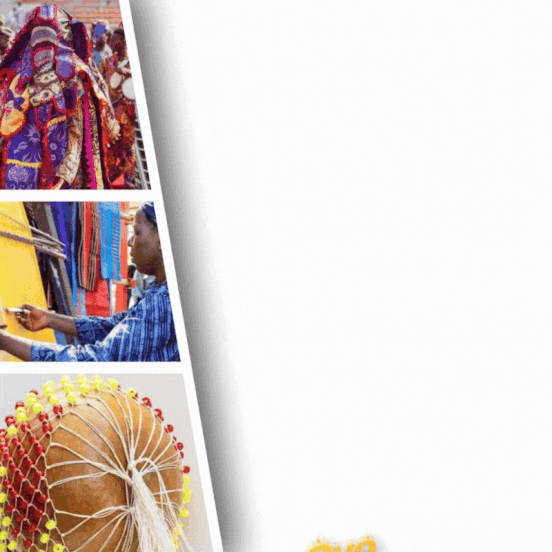Still in the evolving search for who could succeed Governor Seyi Makinde in 2027, one name subtly but steadily gaining traction, not from the trough of party warfare or the frontline of political rallies, but from the quiet corridors of policy rooms, research farms, and international development summits. His name is Dr. Adebowale Akande, Ibadan-born long-haired technocrat, agribusiness expert, and of presently, one of the most strategic minds behind the ongoing agricultural transformation of Oyo State under the Seyi Makinde administration. Now, as conversations about who could succeed Governor Makinde in 2027 still gain attention, Akande’s name is gradually, yet steadily, rising in boardroom conversations.
With a career gauging over two decades in international development, agricultural strategy, public policy, and governance, Akande has not only placed himself as a leading figure in Nigeria’s agribusiness space but also as a silent force within Oyo’s political apparatus. Currently serving as the Director-General of the Oyo State Agribusiness Development Agency (OYSADA) and Executive Adviser on Agribusiness and International Development Cooperation to Governor Makinde, he stands at the cloverleaf of policy and implementation. Through these roles, he has chaired some of the most transformational agricultural initiatives in the state, redeveloping the 3,250-hectare Eruwa Farm Settlement into a world-class industrial hub, setting up public-private partnership models, and engaging global donors like the World Bank, African Development Bank, and the United Nations on behalf of Oyo State.
Debo Akande’s academic credentials are equally pink. He holds a Doctorate in Business Administration with a focus on Agribusiness Strategy from the University of Hertfordshire, UK. He bagged master’s and bachelor’s degrees in International Development Studies and was primed in climate change, environmental law, and food security at institutions as Oxford University, the UN Institute for Training and Research in Geneva, and also the Food and Agriculture Organization. Again, he is a Fellow of the UK Chartered Managers Institute. These qualifications have procured him global consultancy roles with agencies like USAID, DFID, the Bill and Melinda Gates Foundation, Deloitte LLP, and the African Development Bank. He has piloted or participated in strategic programs like the World Bank’s PICAGL, AfDB’s SAPZ, Nigeria’s N-CARES, among others. However, despite his impeccable CV and his record of almost perfect execution, politics is not a PhD thesis, and that’s where Akande meets both his opportunity and his obstacles.
Unlike the more familiar political gladiators in Oyo, Debo Akande is yet to test his name on a ballot even at the smallest polling unit in his ward. He has never contested a political office, never built a grassroots political structure of his own, and never been in the trenches of electoral war. His influence today largely rides on the back of Governor Seyi Makinde’s goodwill, who sees him not just as an aide but as an important part of his success story. This association is both a blessing and a “curse”. First, It gives Akande visibility within policy circles and elite gatherings, but it also anchors his political fate to the outgoing governor, whose own succession plan may be dictated by zoning pressures, party politics, and regional interests. If you know, you know.

Now, to break through into the 2027 race, Akande will have to do more than his regular execution exercises of agribusiness reforms. He will definitely need to convert competence into charisma and policy ideas into political capital. He will need to evolve beyond being “Makinde’s technocrat” to becoming a candidate with independent mass appeal, particularly in a state like Oyo, where sentiment, history, and power matters.
Also, Akande will need major financial firepower. While his contiguity to donor agencies and foreign development institutions gives him access to influence, elections in Oyo are a different game. Gathering delegates, setting up structures, erecting media visibility, and competing against entrenched and existing political players will require hundreds of millions in campaign financing. If Akande lacks the financial independence or heavyweight political supporters ready to bet on him, his ambition could remain in the realm of “technocratic fantasy.”
Moreover, the party dynamics within the Oyo PDP will not be easy. The PDP in Oyo is still very much influenced by long-term gladiators, zonal leaders, elders, and regular kingmakers, who may view Akande as too “young” soft or inexperienced for the rigour of electoral battle. Some may even fear that his cerebral way and “alakowe” posture would alienate the grassroots. Hence, to overcome this, Akande will need to do two major things: first, set up a coalition of youth, professionals, and non-traditional voters who want continuity of Makinde’s vision without the old political baggage; and second, immediate and actively negotiate with PDP elders and Makinde’s core team to endorse and adopt him early enough as their consensus candidate. Without this bridge-building, the ticket might simply pass him by gallantly.
Also, there’s the danger of being outshined by more dramatic or politically aggressive contenders. For now, Akande has no “controversy”, no known scandal, and no popular enemies, but that could also mean he has no obvious political base. If he waits too long to declare interest or fails to openly engage the political process early enough, he risks being dismissed as a non-starter. Yet, there is something unique about Debo Akande’s prospects. If Oyo people truly want a shift from politics of noise to politics of ideas, if the PDP want to present a refined, policy-driven candidate who can take Makinde’s legacy to another desired level, and if sponsors and partners want someone who can continue Oyo’s current development model, then Debo Akande might be one of the most qualified but unlikely candidate for 2027.
His consummate fate depends on a few important moves in the coming months, Will he be interested in Makinde’s seat? Will he officially declare? Will he resign early enough to build a political identity outside the governor’s shadows? Will he secure funding and political backing from necessary stakeholders in PDP and beyond? And most importantly, can he connect with the ordinary voters in Ibadan, Awe, Iseyin, Saki, Ogbomoso, others, not just with data and ideas, but with relatable stories and emotional resonance?
For now, Debo Akande is still an heavy sleeping force in Oyo politics. If he wakes up early enough, inform the important people, gathers the right alliances, and transforms his technocratic strengths into political magnetism, then the 2027 race could be his to disrupt, even if not yet to win. Can he?
Ogungbile Emmanuel Oludotun writes for Oyo Affairs
If you missed our 9-part series on who should succeed Seyi Makinde, here are the links to catch up:
Who Should Succeed Seyi Makinde in 2027? Series 9: Senator Teslim Folarin
Who Should Succeed Seyi Makinde in 2027? Series 8: Otunba Segun Ogunwuyi
Who Should Succeed Seyi Makinde in 2027? Series 7: Meet Engr Dotun Sanusi
Who Should Succeed Seyi Makinde in 2027? Series 6: Meet Eruwa-Born 37-Year-Old Adebo Ogundoyin
Who Should Succeed Seyi Makinde in 2027? Series 5: Meet Chief Bayo Adelabu
Who Should Succeed Seyi Makinde in 2027? Series 3: Meet Akin Alabi, the Entrepreneur-Turned-Lawmaker
Who Should Succeed Seyi Makinde in 2027? Series 2: Meet Ipapo Born Beulah Adeoye
Who Should Succeed Seyi Makinde in 2027? Series 1: Meet 46-Year-Old Bolanle Aminat Sarumi

